
The Surprising Benefits of Word Puzzles for High School & Adult Learners
Need a calm, purposeful activity for high-energy days? See how word puzzles help high school and adult learners review real-world vocabulary while giving everyone a well-earned reset.

Return of the Worksheet: Why Students Are Craving Hard Copies
After years of all-digital everything, students are rediscovering the joy of paper. From engagement to deeper focus and better memory, this post explores why handwriting and printable worksheets are making a comeback in today’s classrooms and how to use them strategically alongside technology.
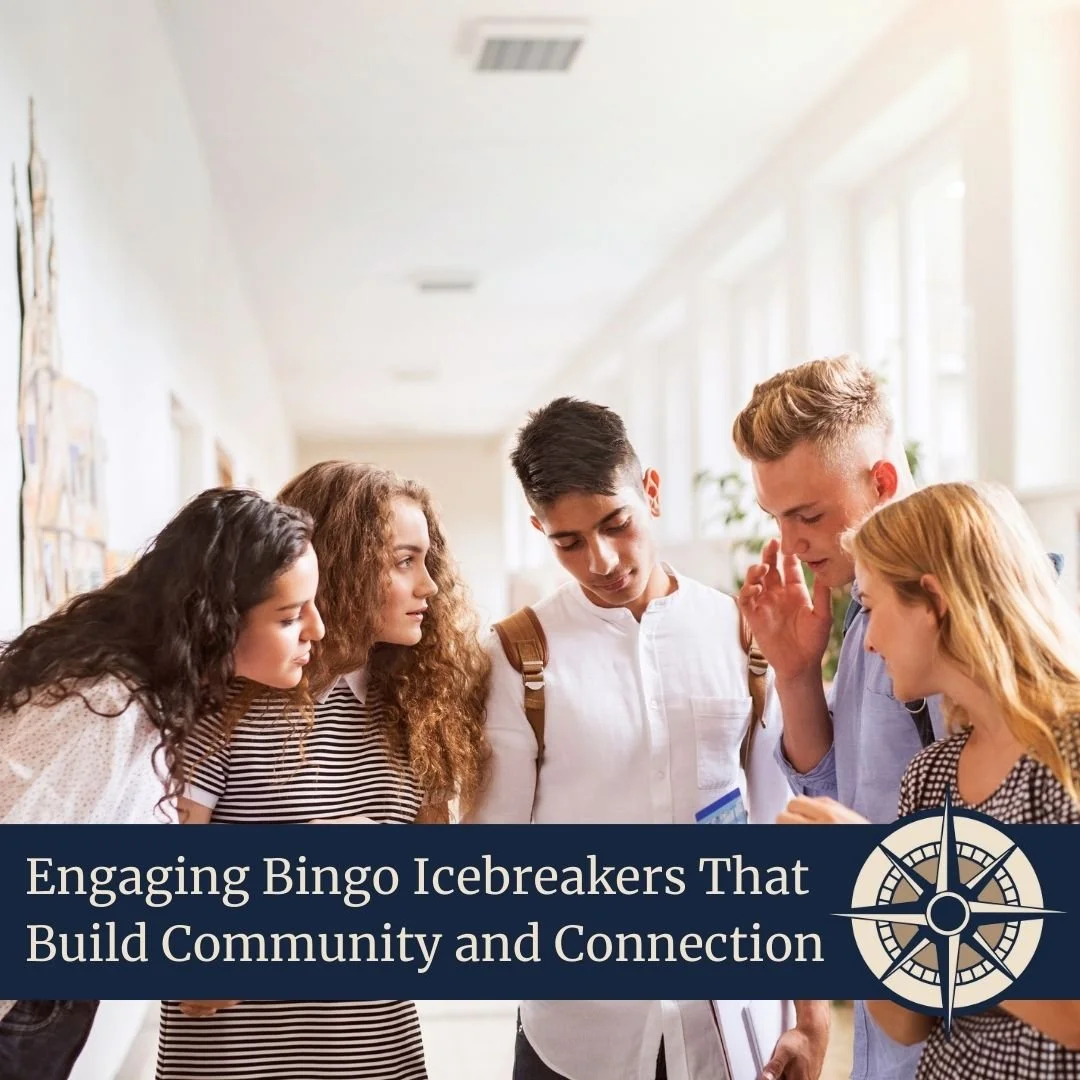
Engaging Bingo Icebreakers That Build Community & Connection
Icebreaker bingo doesn’t have to be cheesy. With the right prompts, it gets students talking about life after high school (college, careers, and real-world skills) while building genuine classroom connections.
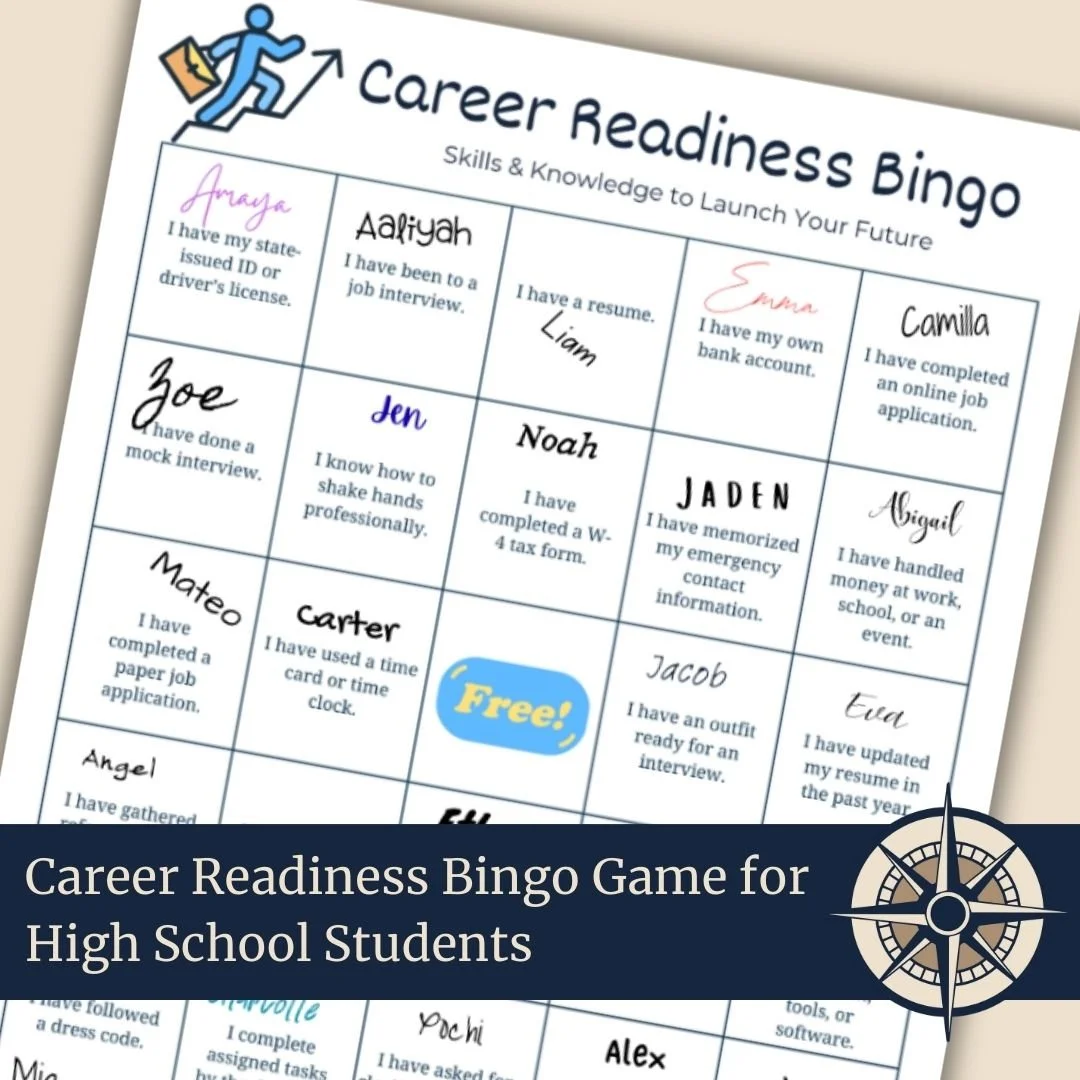
Career Readiness Bingo Game for High School Students
Looking for a fun way to get students talking about careers? Career Readiness Bingo is a low-prep, high-impact icebreaker that helps teens explore jobs, skills, and goals while building classroom community. Perfect for advisory, CTE, sub plans, or career units.

Free Icebreaker Bingo for College & Career Planning
Looking for a meaningful first-day activity? This free icebreaker bingo gets students moving, talking, and exploring their college and career plans. Quick to set up and fun to play, it builds classroom community while sparking real conversations about life after high school.

How to Write Student-Driven Transition Plans
Writing IEP transition plans doesn’t have to feel like checking boxes. This teacher-friendly guide walks you through creating student-driven, real-world goals with practical services that prepare teens for life after high school.
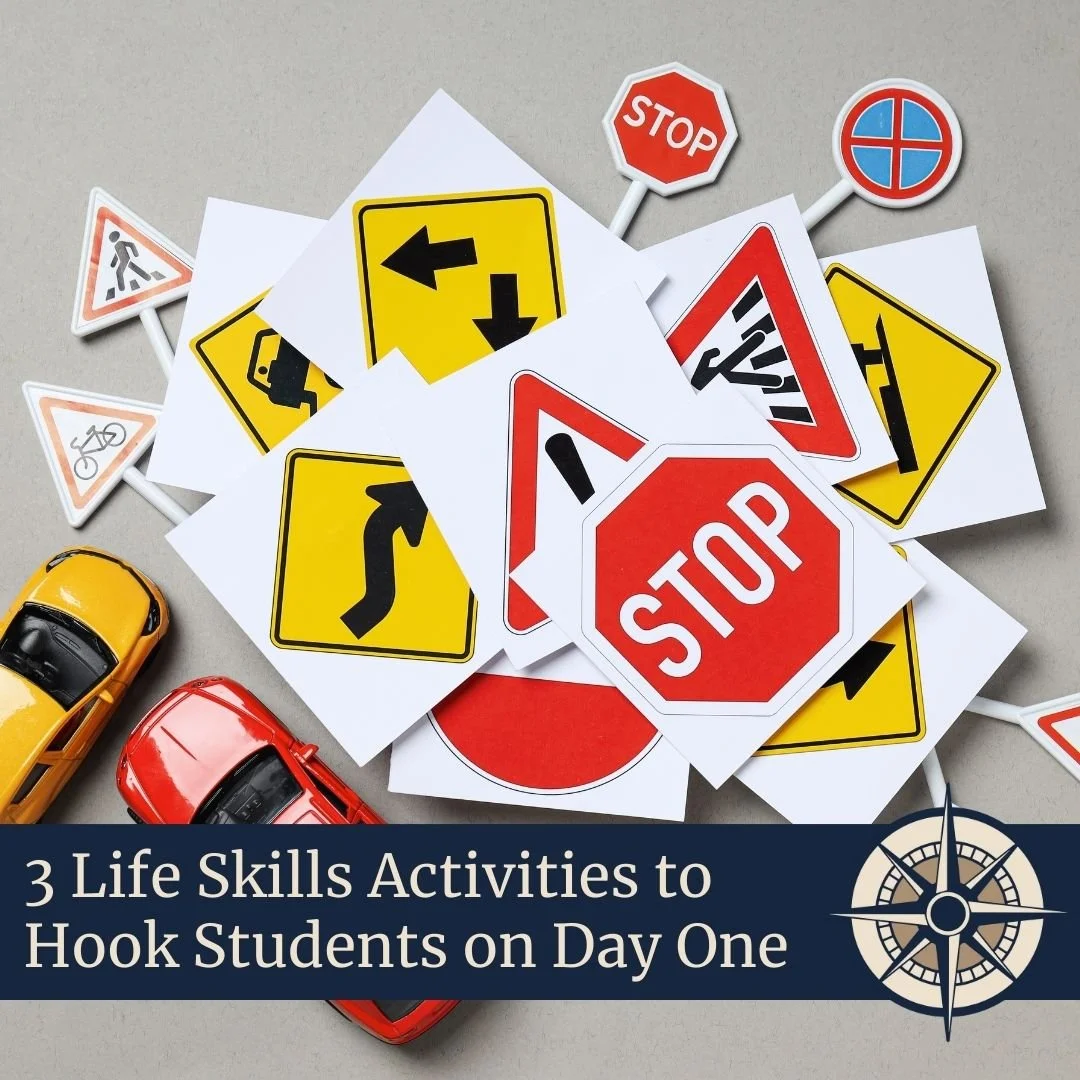
3 Life Skills Activities to Hook Students on Day One
Get your students excited to learn from day one with these 3 real-world life skills lessons. They’re practical, hands-on, and ready to use.

101 Adulting Warm-Ups to Teach Life Skills
Teens are entering adulthood with major life skill gaps. These 101 warm-ups are a simple way to teach essential adulting skills—no extra planning required.

Student SMART Goals Examples to Support Transition Planning
Want to help students take ownership of their IEPs and start thinking beyond high school?
This post walks you through how to use student SMART goals examples to support meaningful transition planning in special education. You'll get real-world goal ideas for education, employment, and independent living—plus practical tips for making goal-setting accessible to all learners.
Whether you're prepping for IEP season or just want a purposeful way to start the school year, this approach builds student voice, choice, and self-determination—without overwhelming them (or you).

Practical Guide to Teaching Life Skills in Adult Ed – Part 3
This post shares 10 of the most essential life skills for adults—plus classroom-ready ways to help students navigate leases, interviews, credit, emergencies, and more. Practical tips, free resources, and real-life relevance included.
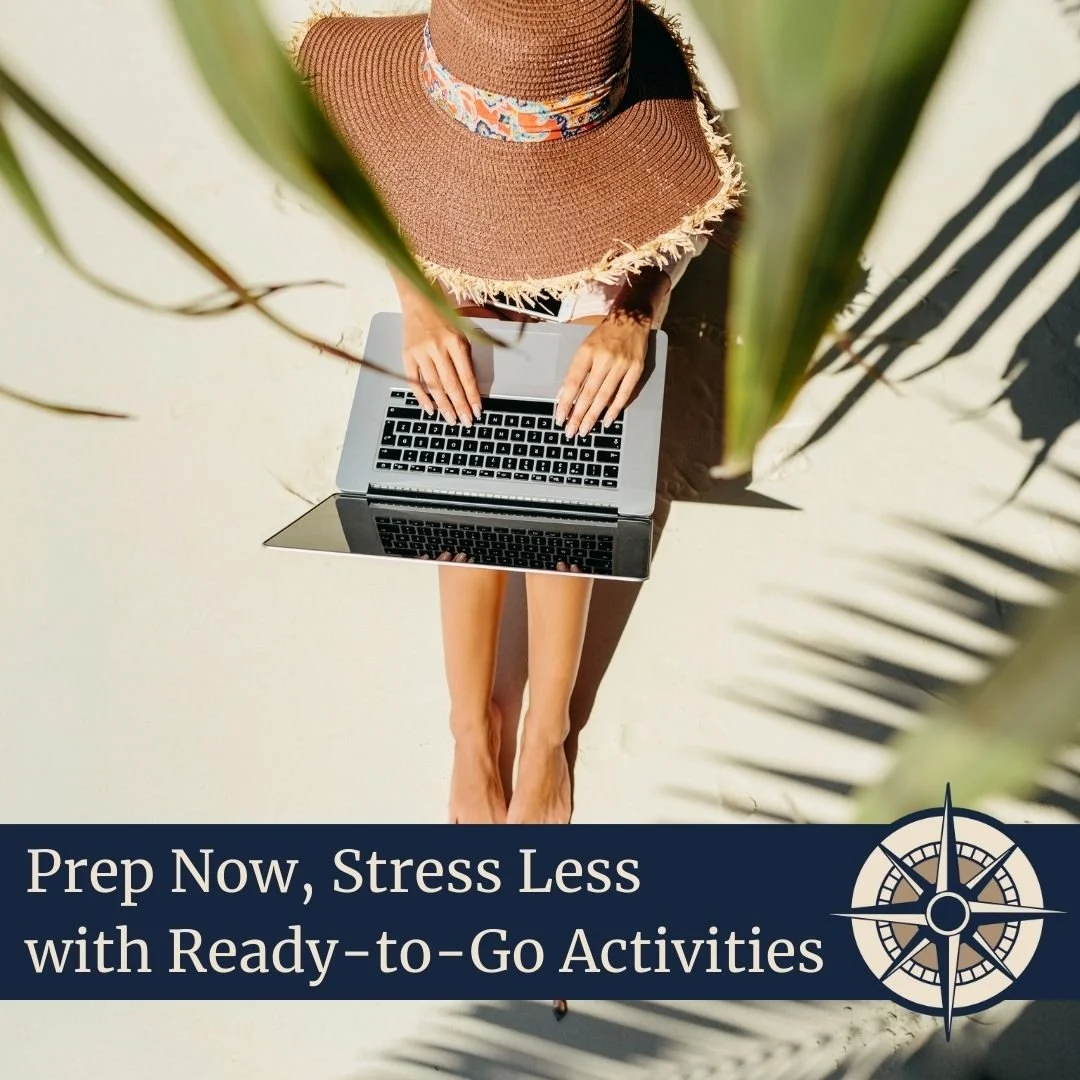
Prep Now, Stress Less with Ready-to-Go Activities
Creating your On-Demand Adulting Folder now is like setting up a safety net for your future teacher self.
Whether it’s a pep rally schedule gone rogue or a last-minute sub situation, you’ll be ready with no-prep activities that still teach something meaningful, like life skills, social skills, or critical thinking. Trust me, future you will be grateful.
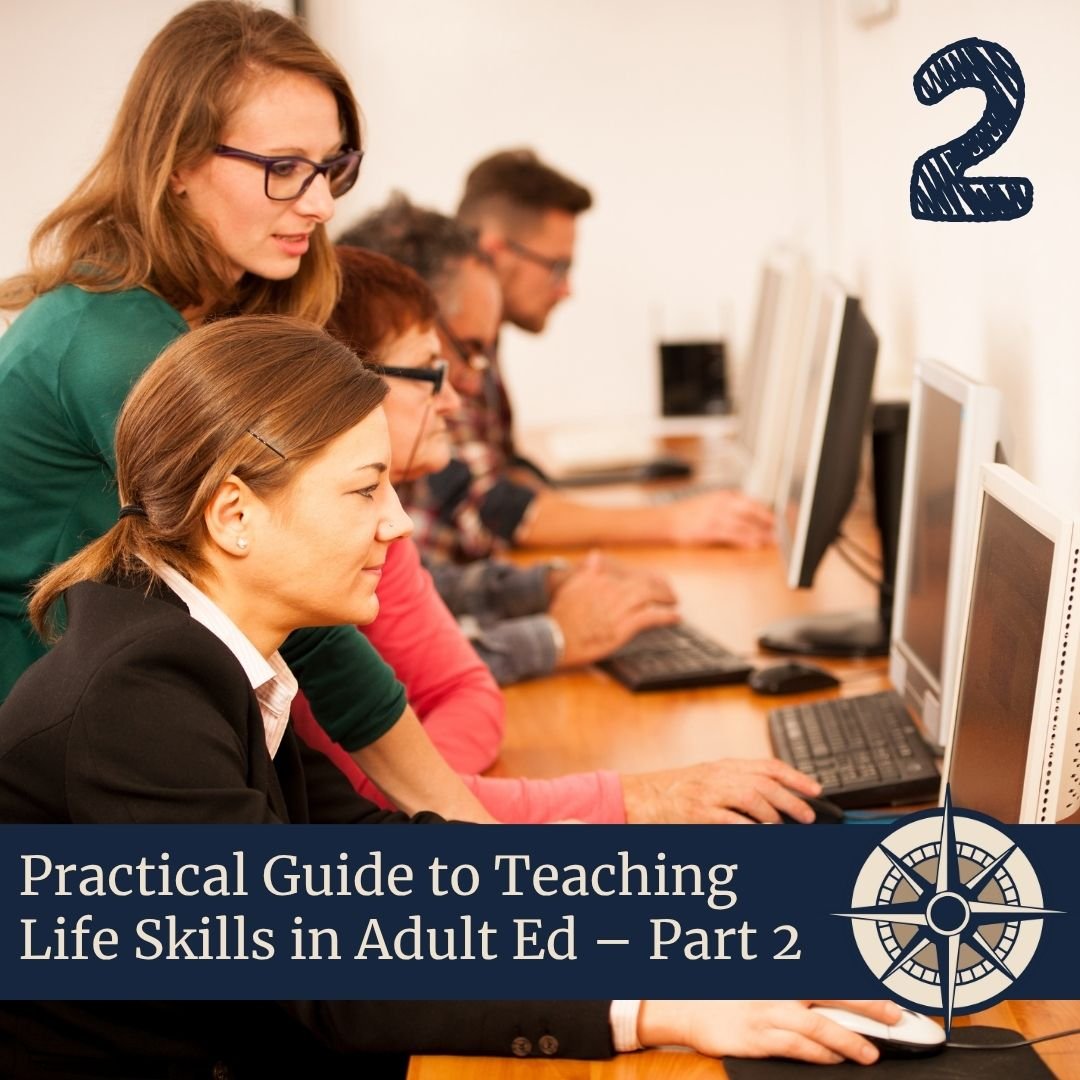
Practical Guide to Teaching Life Skills in Adult Ed – Part 2
If you're trying to teach life skills without overhauling your GED or ESL curriculum, this post is for you. Explore practical, subject-by-subject ideas for embedding adulting activities like budgeting, interviewing, and navigating housing—all with real-world relevance your students will appreciate.

15 Easy Ideas for Teaching Life Skills During the School Day
Ever find yourself with 10 unexpected minutes and a roomful of teenagers staring at you? A perfect opportunity to integrate an adulting activity! This post shares 15 easy, practical ways to integrate life skills into your school day—no curriculum overhaul required. Perfect for high school teachers who want to build real-world readiness, one small teachable moment at a time.
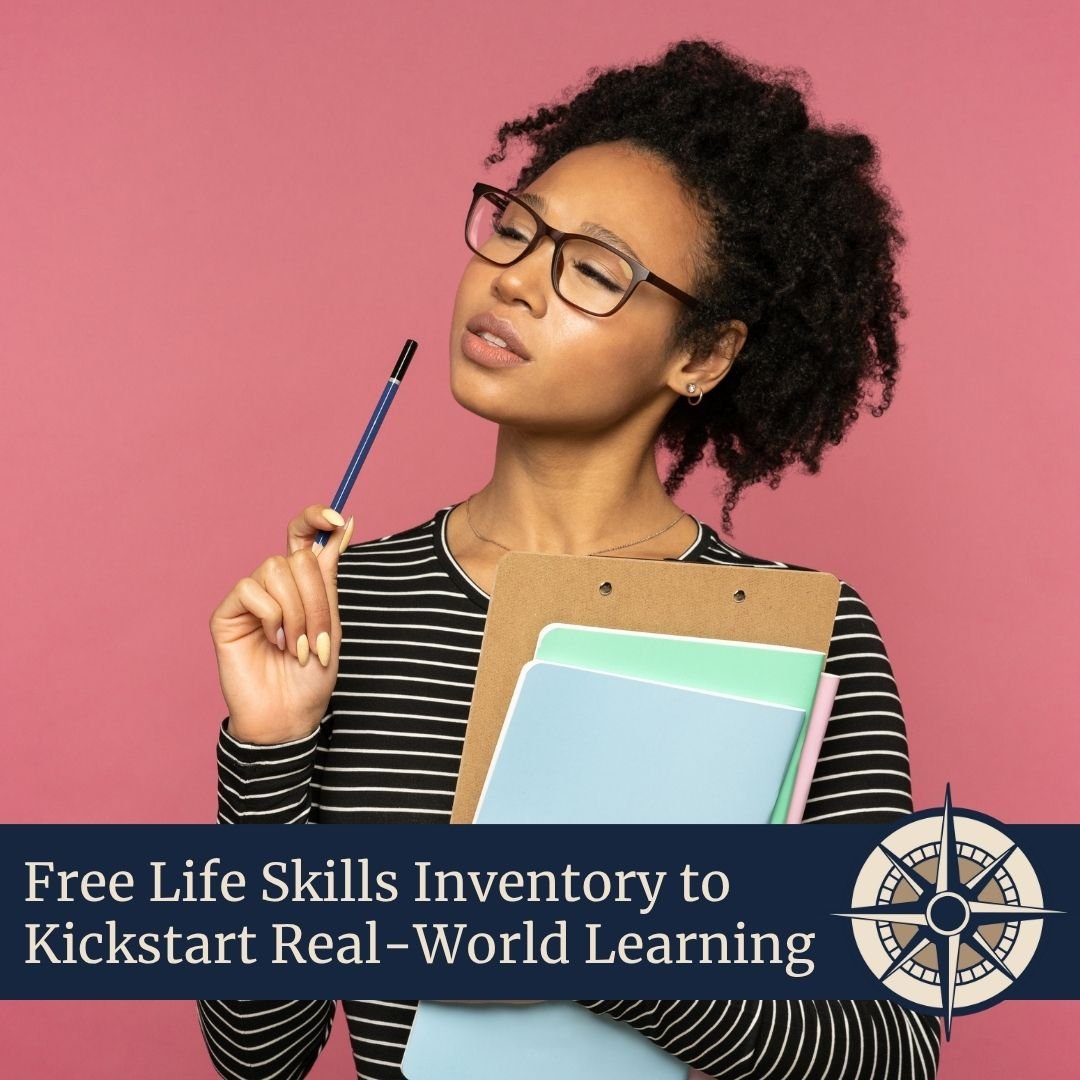
Free Life Skills Inventory to Kickstart Real-World Learning
This free, editable Life Skills Inventory helps students reflect on what they want to learn about adulting—from budgeting and job hunting to time management and education planning. Perfect for IEP transition planning, advisory, or real-world life skills lessons. Includes a printable version, Google Form, teacher guide, and sample student response to make implementation easy.
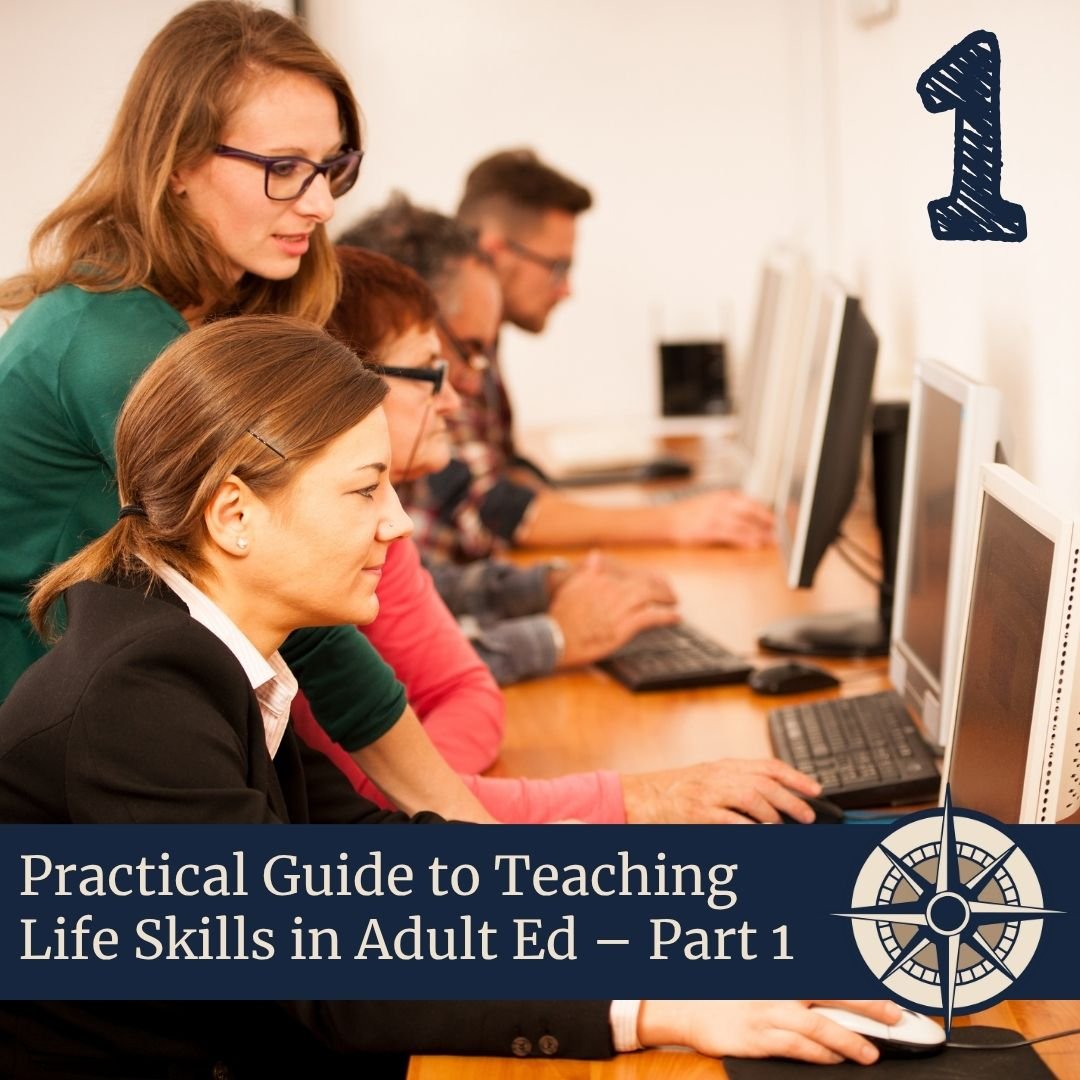
Practical Guide to Teaching Life Skills in Adult Ed – Part I
Teaching life skills in adult education programs is essential for empowering learners to thrive both personally and professionally. Many adults lack knowledge in key areas such as financial literacy, job search strategies, and independent living skills. By incorporating practical "adulting" skills—like budgeting, navigating healthcare, and preparing for postsecondary education—into adult education, educators can better support students in balancing work, family, and school responsibilities. This approach not only helps adult learners meet immediate educational goals but also equips them with the tools for long-term success in their careers and lives.
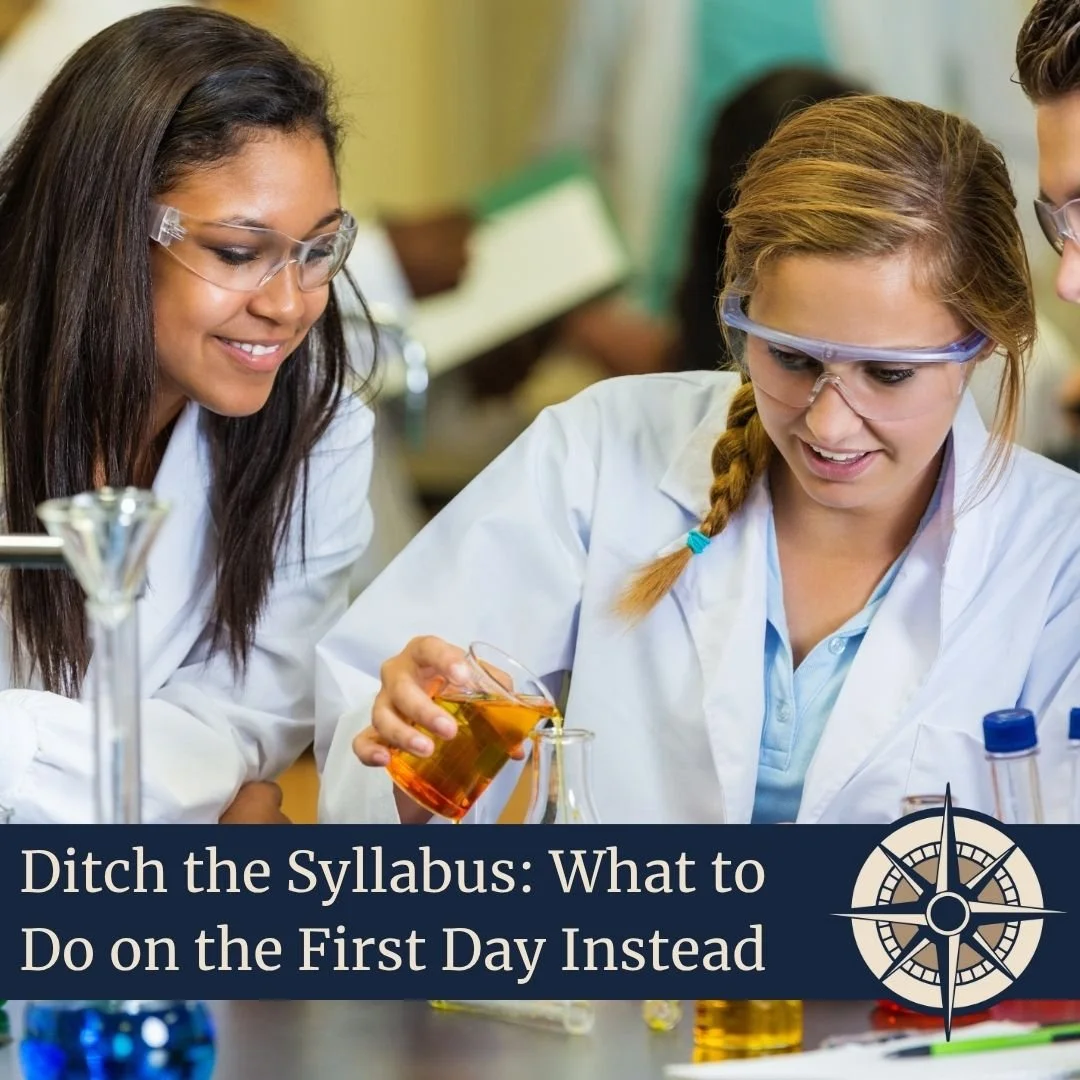
Ditch the Syllabus: What to Do on the First Day Instead
Looking for a better way to start the school year? Ditch the syllabus (just for now) and try these first day of school ideas that get students thinking, talking, and doing.

Personal Success Plan: A Blueprint for Adulting
Empower your students to take control of their futures with the Personal Success Plan—a transformative project that guides them in crafting a detailed, actionable blueprint for adulthood. Combining research-backed strategies with real-world relevance, this activity helps students develop critical planning and goal-setting skills they’ll carry with them for years to come. Discover how this impactful project fosters confidence, accountability, and excitement about the future!

No Sub Plan? No Problem. Adulting Activities to the Rescue!
Ever found yourself covering an unfamiliar class last-minute? My On-Demand Adulting Folder has saved the day more times than I can count. These practical, real-world activities are designed to hook any student—whether they're exploring career paths, learning apartment-hunting basics, or getting tips for job applications. Perfect for high school and adult learners alike, these lessons turn "filler" time into engaging, purposeful learning.

Teaching Students How to Rent a Home, Step-by-Step
In Home Sweet Home: Preparing Students for Their First (or 40th) Rental, educators can find a comprehensive guide to help young adults navigate the often daunting process of securing and maintaining housing. The blog covers essential topics like searching for rental homes, budgeting within income limits, identifying rental scams, and understanding lease agreements. Practical classroom activities, like a house-hunting exercise and a safety quiz, engage students while teaching vital life skills. With real-world insights on renters’ insurance, utility setup, and effective communication with landlords, this lesson prepares students for a smooth transition to independent living.
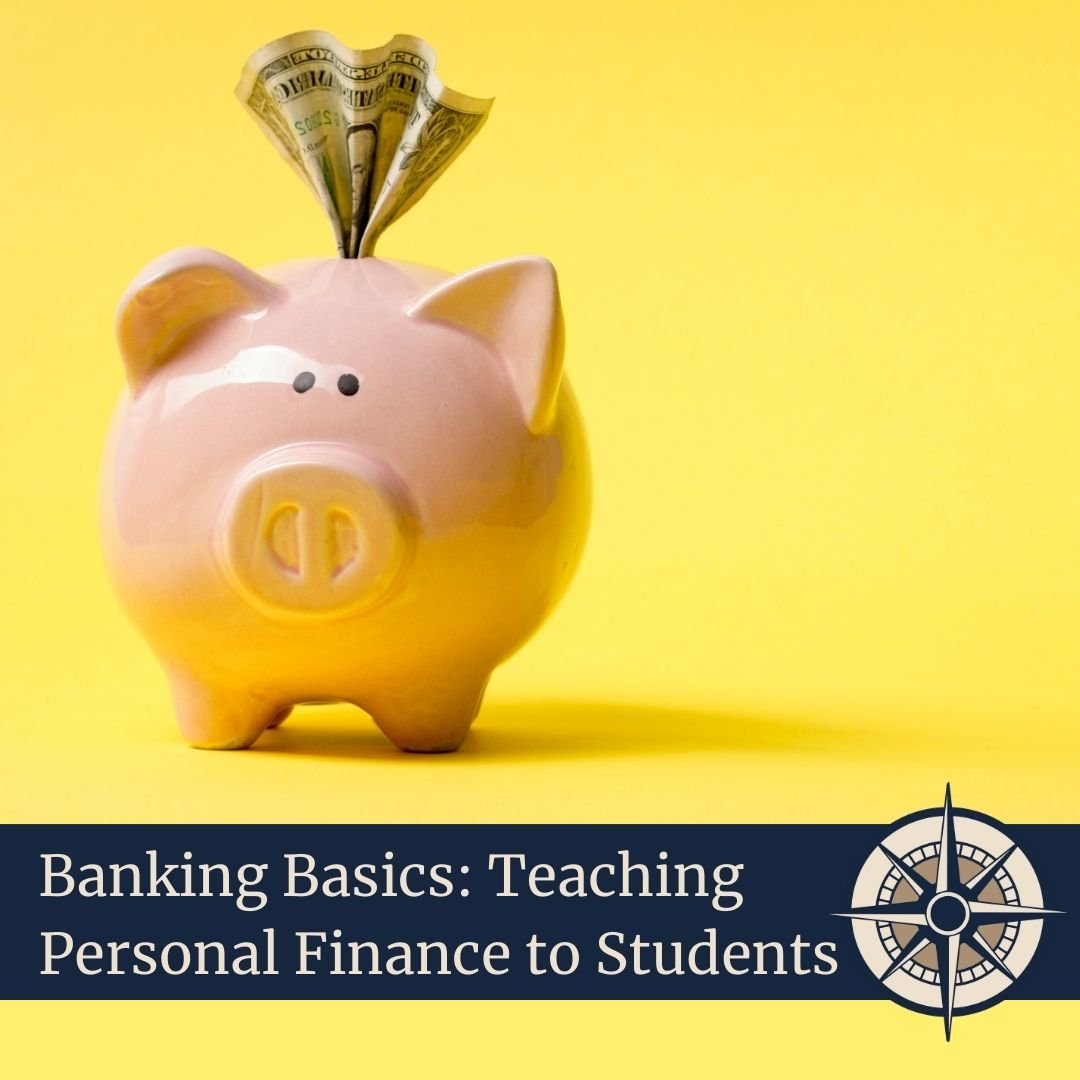
Banking Basics: Teaching Personal Finance to Students
Teaching students the fundamentals of personal banking is crucial for helping them protect their hard-earned money. In a world where alternative financial services can cost a family thousands annually, it’s important to empower students with the knowledge they need to avoid unnecessary fees and predatory lenders. Key concepts like understanding banking terminology, comparing different types of accounts, and exploring financial institutions all contribute to their financial literacy. Through practical exercises like writing checks, reviewing bank applications, and setting up account alerts, students gain real-world experience. By wrapping up with discussions on risky alternatives to banking, such as payday loans, students are better equipped to make informed decisions about their financial future.
